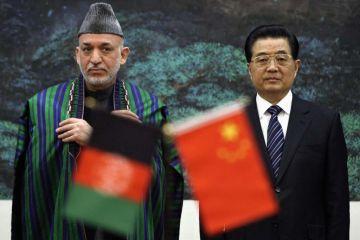
India’s Gambit in the Central Asian Abyss
Central Asia dazzles the world with its energy sources.

Central Asia dazzles the world with its energy sources.

China’s economic involvement has increased in Afghanistan. Will it be a stabilizing force as the United States withdraws?

With several pipeline projects under way, Central Asia is readying itself for a new “Great Game.”
Desperate to secure supply routes to Afghanistan, the United States has been spending at least six times more on military aid for the mostly authoritarian states of Central Asia than on efforts to promote political liberalisation and human rights in the region.

The oil industry’s reckless pursuit of extreme energy carries with it the inevitable risks of environmental and political peril. The Gulf oil spill is only the latest in a series of disasters. Arctic drilling, deals with African dictatorships, natural gas pipelines in Central Asia: the pursuit of fossil fuels has brought the United States into war, corruption, and ecological messes.
The proposed U.S. ban on gasoline sales to Iran is better than bombing the country. But, columnist Michael Klare asks, could such a ban lead to war anyway?

Politics is much like physics, columnist Conn Hallinan argues: for every reaction there is an equal and opposite reaction. And NATO is generating just such a reaction.
Are the United States and China heading toward an economic and military showdown or a peaceful convergence of interests? Two prominent China scholars, James Nolt and Bonnie Glaser, go head-to-head to answer the question.
With the collapse of the Soviet Union and the triumph in the Gulf War, the United States standsat least for a timeas the region’s dominant outside power.